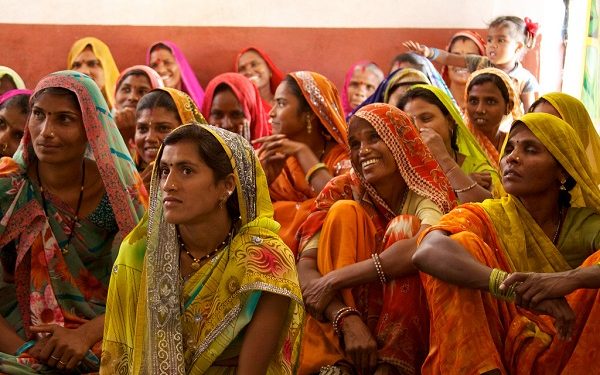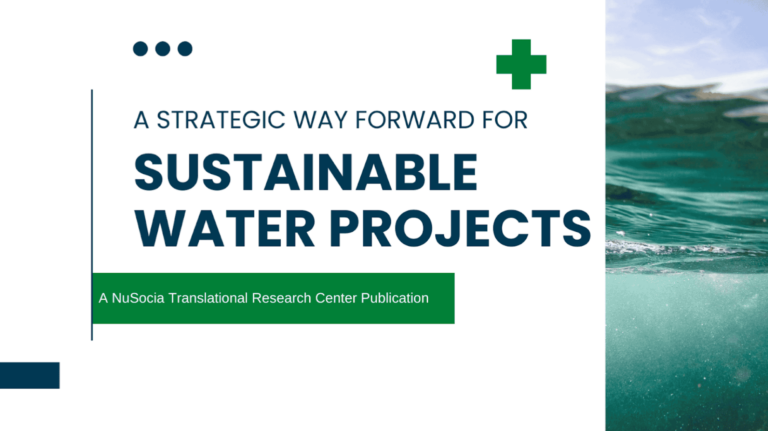No country can ever truly flourish if it stifles the potential of its women and deprives itself of the contributions of half of its citizens. – Michelle Obama
Menstruation has a historic and deeply-ingrained connotation of being a taboo in India which creates an enormous impact on women – over 20% of girls drop out of school permanently at puberty and Reproductive Tract Infections (RTIs) are rife, particularly in rural areas, due to the lack of availability of proper sanitary products. India accounts for 27% of the world’s cervical cancer deaths and the incidence rate is almost twice the global average with poor menstrual hygiene partly to blame. (Jeevika Trust)
In a first of its kind project, a large corporate and two SMEs have come together in the state of Maharashtra, with a grassroot level NGO working in community to address rural menstrual health and promote sanitary napkin usage, based on a unique collaboration model developed by NuSocia. Under the collaboration model, which was featured in the book “The Complete SME Growth Guide – by Samuel Sudhakar” and has been seeing interest amongst the SMEs wanting to develop their CSR program, TSPDL (Tata Steel Processing and Distribution Limited) Pune is the lead player. TSPDL (a wholly owned subsidiary of Tata Steel) through its Corporate Social Responsibility (CSR) initiatives, continue to take forward the group legacy of empowering women as an integral part of its efforts in improving quality of life of the key communities being served. In the project, the organisation contributed in procuring manufacturing machines for producing high quality sanitary napkins. Two Pune based SME’s have collaborated in contributing to the operating expense of the project, which is being implemented on ground by RMUBS (Ramling Mahila Unnati Bahuuddeshiy Sanstha), which is supplying these sanitary napkins through over 200 women Self Help groups in the region. One of the key beneficiaries of the project are the brick kiln workers who have received the sanitary napkin packets for free of cost from RMUBS.

Female micro-entrepreneurs produce and sell pads, bringing sanitary hygiene to women and girls in rural Maharashtra, India
In addition to making the personal hygiene better for the product users, the project has also become a livelihood source for 8 women involved with manufacturing and logistics of these pads, aptly branded under the name “Saheli” meaning “female friend”. The collaboration project is being run on the platform created by NuSocia, which is also doing the project design, monitoring and reporting. By taking away the operational tasks from both sides, the collaboration platform has made sure that while the donors are updated about project status at the click of a button, in the most transparent manner; the NGO is relieved from its responsibility of ‘donor management’. The two SME donors are elated being part of a large impact initiative, which individually they would not have been able to support, due to large capex investment involved. NuSocia plan to take this collaboration opportunity to many more SMEs and CSR partners across the country. Amol Dhakane, co-founder NuSocia says, “We aim to leverage technology to bring transparency while taking away the challenges of partnerships in social sector allowing each partner to focus on doing what they do best”.
To make female menstrual hygiene a health topic and not a taboo, it is also equally important to educate and empower women. Experiments such as the one described here will slowly be changing the perception that women should be ashamed about menstruation. Innovative collaboration models, built on transparency value, can go a long way as it brings together several contributing organisations – required to scale the impact. The true success of the project is to enable Jahnvi, one of the shy schoolgirl in the community to go out and freely pursue life’s opportunities and contribute actively to social and economic development of her family and community.




